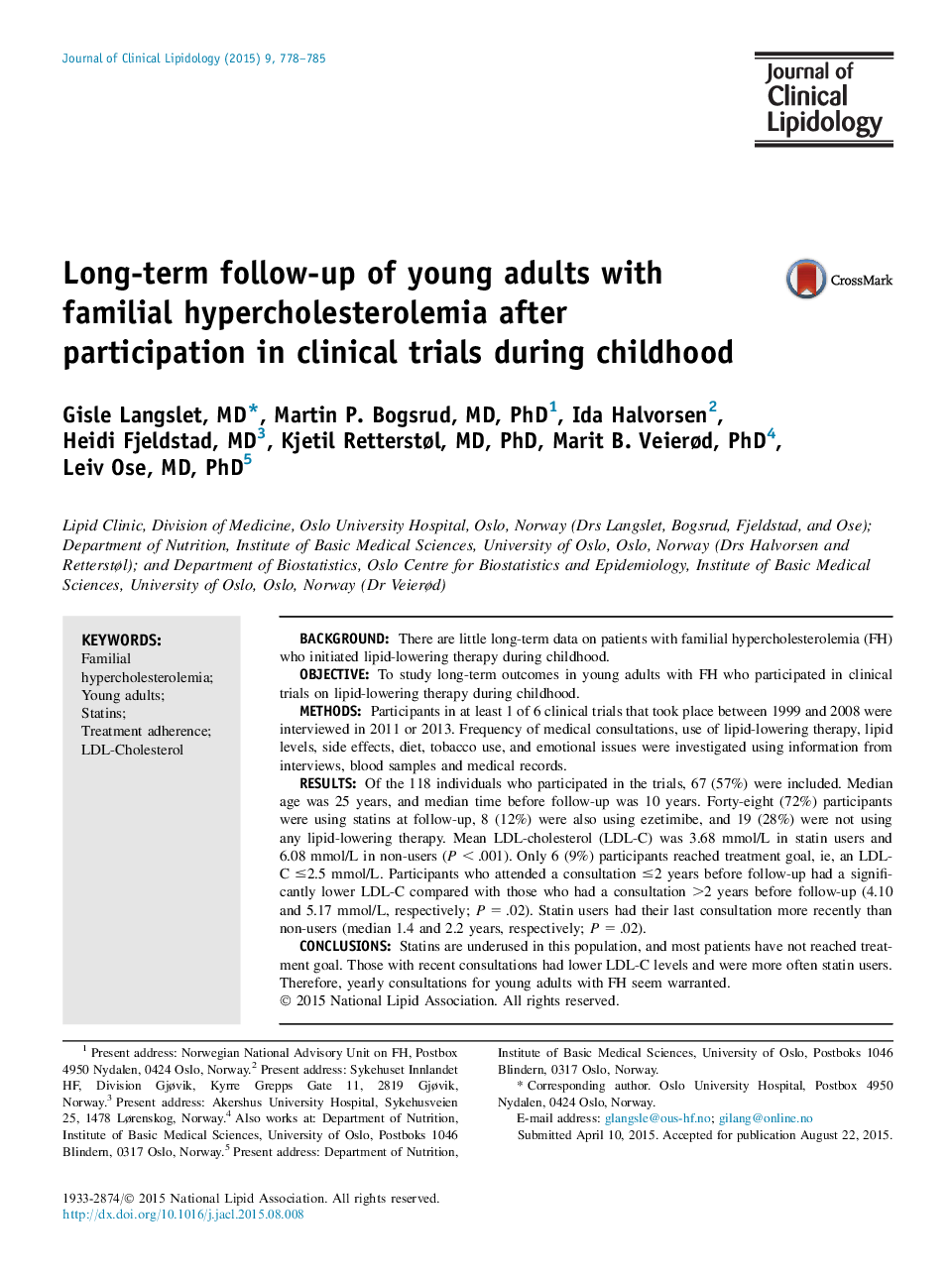| Article ID | Journal | Published Year | Pages | File Type |
|---|---|---|---|---|
| 5985802 | Journal of Clinical Lipidology | 2015 | 8 Pages |
â¢Ten-year follow-up of 67 young adults with familial hypercholesterolemia (FH).â¢One in 4 did not use statins and only 9% had an LDL-cholesterol (LDL-C) â¤2.5 mmol/L.â¢LDL-C was significantly lower when time since last consultation was â¤2 years.â¢Yearly consultations for young adults with FH seem warranted.
BackgroundThere are little long-term data on patients with familial hypercholesterolemia (FH) who initiated lipid-lowering therapy during childhood.ObjectiveTo study long-term outcomes in young adults with FH who participated in clinical trials on lipid-lowering therapy during childhood.MethodsParticipants in at least 1 of 6 clinical trials that took place between 1999 and 2008 were interviewed in 2011 or 2013. Frequency of medical consultations, use of lipid-lowering therapy, lipid levels, side effects, diet, tobacco use, and emotional issues were investigated using information from interviews, blood samples and medical records.ResultsOf the 118 individuals who participated in the trials, 67 (57%) were included. Median age was 25 years, and median time before follow-up was 10 years. Forty-eight (72%) participants were using statins at follow-up, 8 (12%) were also using ezetimibe, and 19 (28%) were not using any lipid-lowering therapy. Mean LDL-cholesterol (LDL-C) was 3.68 mmol/L in statin users and 6.08 mmol/L in non-users (P < .001). Only 6 (9%) participants reached treatment goal, ie, an LDL-C â¤2.5 mmol/L. Participants who attended a consultation â¤2 years before follow-up had a significantly lower LDL-C compared with those who had a consultation >2 years before follow-up (4.10 and 5.17 mmol/L, respectively; P = .02). Statin users had their last consultation more recently than non-users (median 1.4 and 2.2 years, respectively; P = .02).ConclusionsStatins are underused in this population, and most patients have not reached treatment goal. Those with recent consultations had lower LDL-C levels and were more often statin users. Therefore, yearly consultations for young adults with FH seem warranted.
